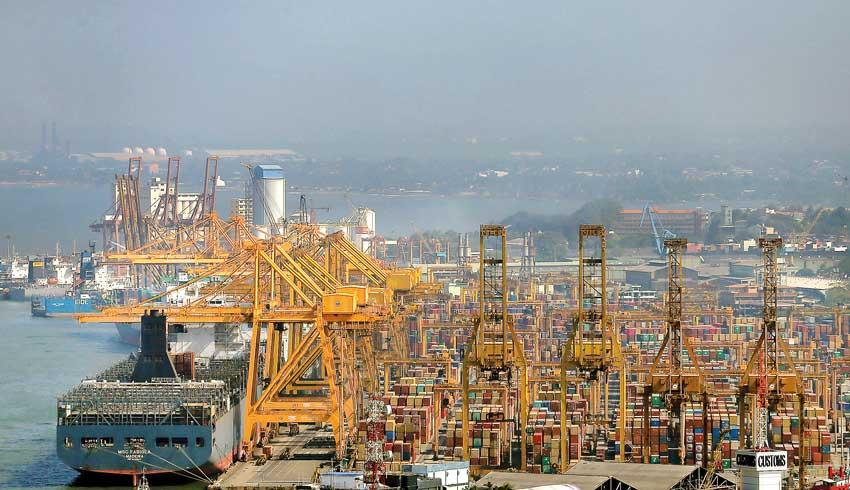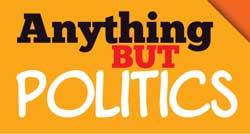Reply To:
Name - Reply Comment
Last Updated : 2024-04-27 00:00:00

Critics point out that if the Government of Sri Lanka signs a deal with India to hand over the development of the East Container Terminal (ECT) of Colombo to an Indian company India would be the beneficiary of the island’s port facilities or rather transshipment activities (Pic Reuters )
Some eminent Buddhist monks such as Ven. Elle Gunawamsa Thera and Ven. Medagoda Abhayatissa Thera are among those who made the most incisive and hard hitting comments against the regime
The U.S. has long advocated for what it called ‘free and open navigation’ in the Indo-pacific region. India is a strategic alliance with the U.S. in this respect
The U.S. Defence Strategic Guidance issued in January 2012 had discussed India and characterised U.S. hopes for the country to exert leadership in the Indian Ocean
 The business model proposed by the Government for the development of the East Container Terminal (ECT) of Colombo in partnership with an Indian company has come under severe criticism by the trade unions including those affiliated to the government. A section of the powerful Buddhist clergy has also thrown its weight behind the port workers’ agitation- a move that really made it difficult for the Government to decide on it. Some eminent Buddhist monks such as Ven. Elle Gunawamsa Thera and Ven. Medagoda Abhayatissa Thera are among those who made the most incisive and hard hitting comments against the regime.
The business model proposed by the Government for the development of the East Container Terminal (ECT) of Colombo in partnership with an Indian company has come under severe criticism by the trade unions including those affiliated to the government. A section of the powerful Buddhist clergy has also thrown its weight behind the port workers’ agitation- a move that really made it difficult for the Government to decide on it. Some eminent Buddhist monks such as Ven. Elle Gunawamsa Thera and Ven. Medagoda Abhayatissa Thera are among those who made the most incisive and hard hitting comments against the regime.
Criticism is basically centred on possible economic and geopolitical impact on Sri Lanka by sharing any stake of its national, strategic assets with an external party.

That the geopolitical interests are attached to the ECT project became apparent when U.S. ambassador Alaina B. Teplitz, in a virtual roundtable discussion with a select group of journalists, said that the involvement of an Indian company would be essential for Sri Lanka’s maritime future. She said it is more so, obviously with India being the beneficiary of Sri Lanka’s port facilities or rather transshipment activities.
The U.S. has long advocated for what it called ‘free and open navigation’ in the Indo-pacific region. India is a strategic alliance with the U.S. in this respect. India is featured prominently even in the quadrilateral cooperation involving Japan, the U.S, and Australia as its other partners in the Indo-pacific region.
According to a paper submitted by Nilanthi Samaranayake, who is the Director, Strategy and Policy Analysis Programme of the CNA, a non-profit research organization in Washington, the United States had characterised its strategic interests in Asia as being in the ‘Asia –Pacific’ for a long period
According to a paper submitted by Nilanthi Samaranayake, who is the Director, Strategy and Policy Analysis Programme of the CNA, a non-profit research organization in Washington, the United States had characterised its strategic interests in Asia as being in the ‘Asia –Pacific’ for a long period.
But, as described by her, in 2012, the Obama administration began experimenting with a new articulation of its regional interests as extending beyond the Asia- Pacific. The State Department began referring to the potential for an ‘Indo-Pacific economic corridor’ to connect South and Southeast Asia.
Her paper says, “the following year, the commander of U.S.Pacific Command (PACOM) ADM Samuel Locklear began referring to this region as the ‘ndo- Asia-Pacific’ to characterise the expanse of U.S. interests in his area of responsibility (AOR).
The term Indo-Asia-Pacific finally acknowledged the fact that the AOR had long included the Indian Ocean. However, this shift in terminology also reflected an ongoing U.S. policy effort to emphasise the elevated importance of India to U.S. strategic interests. The U.S. Defence Strategic Guidance issued in January 2012 had discussed India and characterised U.S. hopes for the country to exert leadership in the Indian Ocean. Following this lead from PACOM, the U.S. Navy, Marine Corps, and Coast Guard adopted the conceptualization of the region as the Indo-Asia-Pacific in their 2015 strategy document, Cooperative Strategy for 21st Century Seapower,”.
Apart from such U.S. based independent analysts, even top officials of the U.S. Government who visited Sri Lanka on and off always referred to the Indo-pacific policy and articulated that it should be free and open for navigation. The ambassador also reiterated this position once again.
India is seeking a stake in the Colombo Port not only because of economic interests, but also strategic aspects. It is true that a bulk of Colombo port’s transshipment businesses is done with India.
India plays a vital role in achieving our shared vision for a free and open Indo-Pacific. Working alongside interagency partners, the Political-Military Affairs (PM) Bureau advances the defence trade relationship and broader security partnership between the United States and India.
The U.S.and India have common, shared interests in the maritime domain. The U.S. has designated India as a Major Defence Partner. In 2018, India was elevated to Strategic Trade Authorization tier 1 status.
Then, it is natural for the U.S. ambassador to spell out her interests in Sri Lanka entering into a partnership with an Indian company to manage a terminal of the Colombo port. The joint interests of India and The United States play out in this fashion in Sri Lanka. The two countries are allied against nothing but China. They hold the view that Chinese presence in economic activities is disproportionately large.
For that very reason, the U. S. Ambassador, in response to questions directed at her said that Sri Lanka should close more deals with partners outside China as otherwise it would re-impose the idea that China had a disproportionately large presence in Sri Lanka. Such thinking would have also prompted her to express her interests in seeing India having a stake in the port development here in Sri Lanka.
However, for India, economic interests also prevail in a big way in bidding for a stake in the port. Colombo is the main transshipment hub for India. In fact, its transshipment business with India accounts for 66 percent. No port in India is deeper than Colombo. So, mother vessels with India-bound business are berthed in Colombo to unload their containers into small vessels to be ferried to Indian ports. However, strategic aspects are linked to
economic projects.

Add comment
Comments will be edited (grammar, spelling and slang) and authorized at the discretion of Daily Mirror online. The website also has the right not to publish selected comments.
Reply To:
Name - Reply Comment
US authorities are currently reviewing the manifest of every cargo aboard MV
On March 26, a couple arriving from Thailand was arrested with 88 live animal
According to villagers from Naula-Moragolla out of 105 families 80 can afford
Is the situation in Sri Lanka so grim that locals harbour hope that they coul
9 minute ago
9 minute ago

6 hours ago
7 hours ago